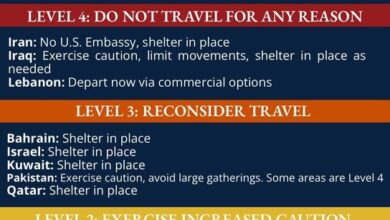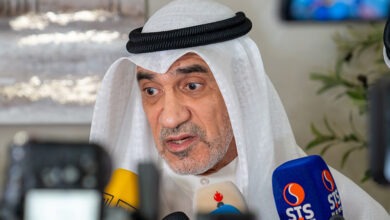Indo-Kuwait relationship: A historical friendship and strategic partnership
Indian Prime Minister Narendra Modi’s two-day visit to Kuwait on 21–22 December, 2024 marked a historic moment in India’s growing diplomatic engagement with the Gulf region, symbolizing a major reset in alignment with the region, as well as a strategic deepening of bilateral ties with Kuwait.
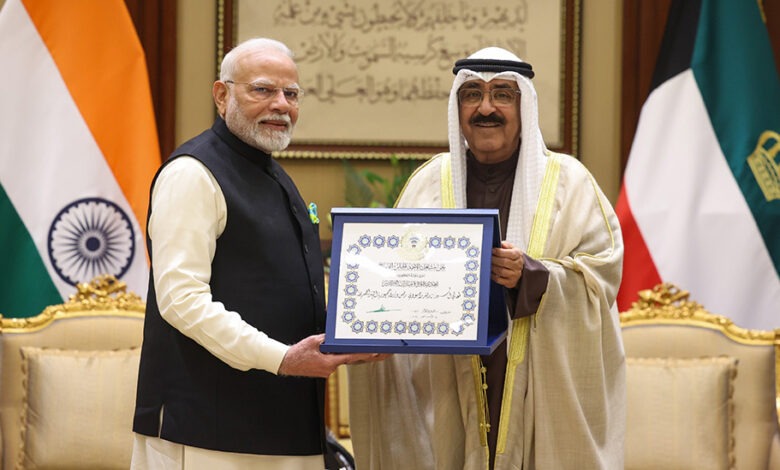
By Reaven D’Souza
Executive Managing Editor
Indian Prime Minister Narendra Modi’s two-day visit to Kuwait on 21–22 December, 2024 marked a historic moment in India’s growing diplomatic engagement with the Gulf region, symbolizing a major reset in alignment with the region, as well as a strategic deepening of bilateral ties with Kuwait.
The Indian premier’s visit to Kuwait was the first by an Indian Prime Minister in 43 years; the previous visit was by former PM Indira Gandhi in 1981. The enthusiastic welcome accorded to Prime Minister Modi by Kuwait was an attestment that, despite the passage of over four decades, the warmth of friendship and the strong bonds binding the two nations on multiple levels continues unabated.
The prime minister’s two-day visit, at the invitation of His Highness the Amir Sheikh Meshal Al-Ahmad Al-Jaber Al-Sabah, was a blend of diplomacy, cultural outreach, economic cooperation, and a strong message of solidarity with the million-strong Indian diaspora in Kuwait
A pivotal outcome of the prime-ministerial visit was the elevation of India–Kuwait relations to a Strategic Partnership. This upgrade signaled an intent to broaden cooperation across multiple sectors including defense, energy, trade, healthcare, and education.
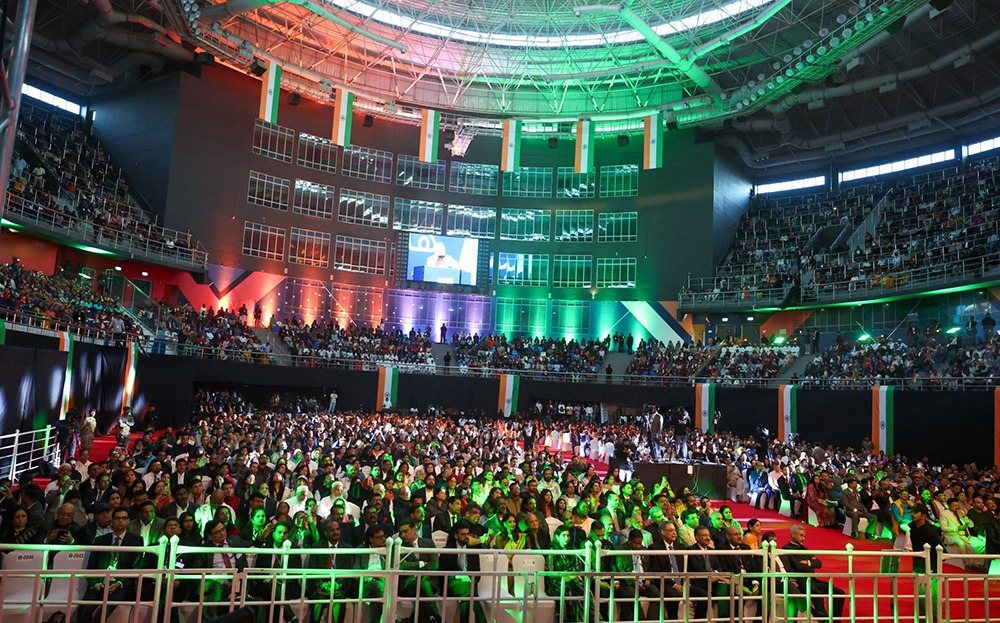
On the second day of his two-day visit to Kuwait, Prime Minister Modi was welcomed with a ceremonial Guard of Honor at the Bayan Palace. Following the official welcome, he held substantial talks with His Highness the Amir and with His Highness the Crown Prince, Sheikh Sabah Al-Khaled Al-Hamad Al-Sabah on further enhancing bilateral relations.
During the meeting, the leaders focused on strengthening cooperation across various sectors, including defense, security, trade, investment, technology, health, education, and cultural exchanges. Several memorandum of understandings (MoUs) were also inked during the visit, including one on defense that opens the doors to joint training, technology exchange and defense industry cooperation.
Three other MoUs signed on the occasion were a cultural exchange program for the period 2025-29, with the aim of further entrenching people-to-people ties. A sports cooperation agreement for the period 2025-28 to foster youth engagement; and an agreement on Kuwait officially joining the International Solar Alliance, initiated by India and France, and signaling Kuwait’s keenness to involve in sustainable energy collaboration.
Energy and trade relations are important to both countries.
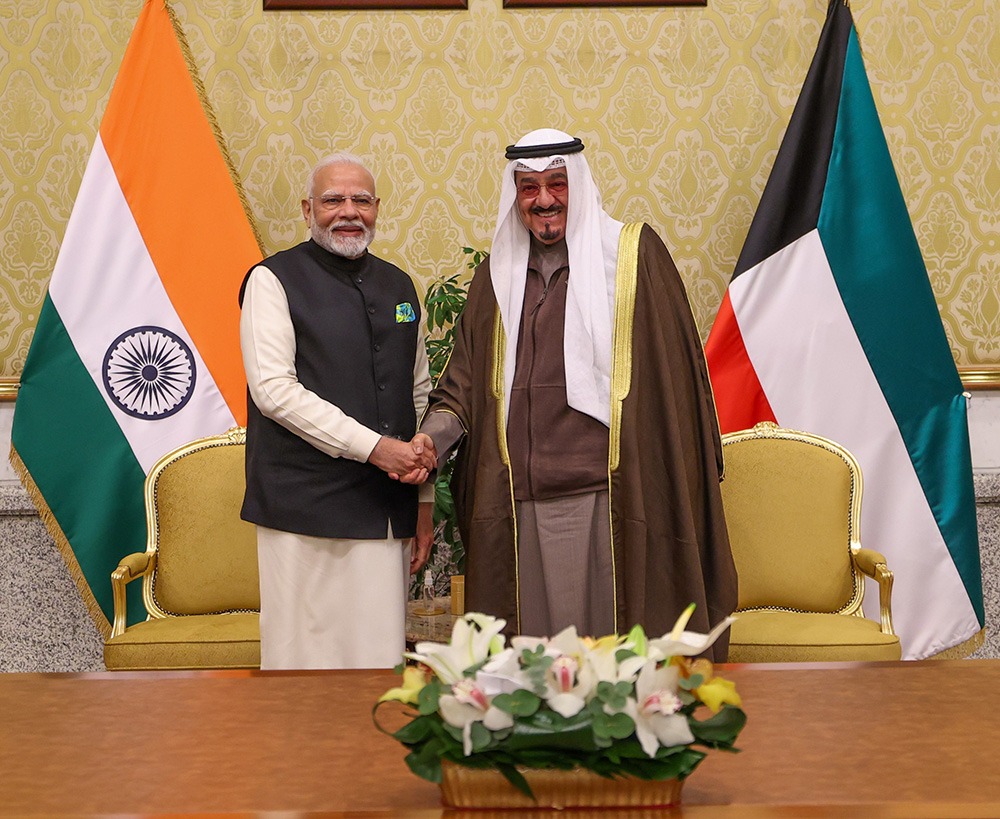
Kuwait is a key energy supplier to India, contributing around 3 percent to India’s crude oil needs. With a bilateral trade volume of US$10.5 billion in FY 2023–24, the economic partnership is robust. Indian exports to Kuwait exceeded $2 billion for the first time, and the Kuwait Investment Authority has invested over $10 billion in Indian sectors like infrastructure and technology.
The leaders of India and Kuwait also discussed cooperation in IT, pharmaceuticals, FinTech, cybersecurity, and infrastructure development, areas where India has proven expertise. Additionally, India reaffirmed its commitment to supporting Kuwait in essential sectors such as food supply chains and pharmaceuticals, especially in the wake of global disruptions.
During his visit with His Highness the Amir, Prime Minister Modi lauded His Highness’ leadership and the country’s Vision 2035. He also personally extended an invitation to His Highness the Amir to visit India. he Indian premier’s visit also had a strong cultural dimension. He attended the opening ceremony of the Arabian Gulf Cup as Guest of Honor and met with scholars who translated the Ramayana and Mahabharata into Arabic, strengthening civilizational links.
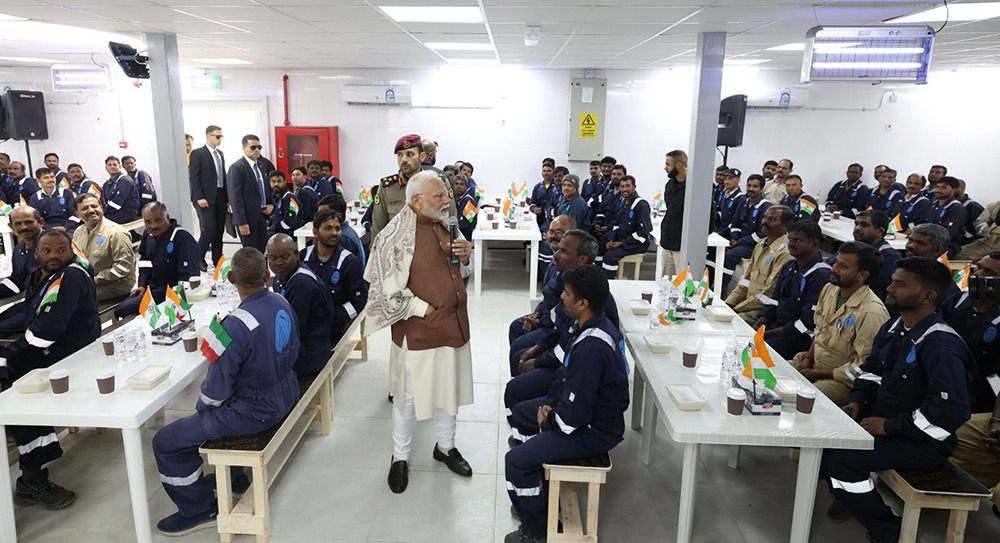
In a moving address to the Indian diaspora at the ‘Hala Modi’ event, Modi referred to the over one million-strong Indian community as a “mini Hindustan”, acknowledging their contribution to Kuwait’s economy and society. He also expressed gratitude to His Highness the Amir for the support extended to Indians, especially during emergencies such as the tragic Mangaf fire incident. PM Modi also took time during his trip to visit and engage with workers at a labor camp, reinforcing the government’s commitment to the welfare of overseas Indians.
During Prime Minister Modi’s visit to Kuwait, His Highness the Amir awarded Kuwait’s highest civilian honor, the Order of Mubarak Al-Kabeer to the Indian premier, in a testament to the centuries old ties and the continuing strong relationship between the two nations.
Prime Minister Modi’s visit to Kuwait was far more than symbolic, it was epochal, marking a strategic, emotional, and cultural milestone that witnessed the elevation of bilateral ties to a strategic partnership, the extension of cooperation to new fields, and the deepening of people-to-people connections. The visit laid the foundation and set the tone for a more integrated and forward-looking relationship between the two nations that aims to increase collaboration, mutual growth, and shared global engagement.







